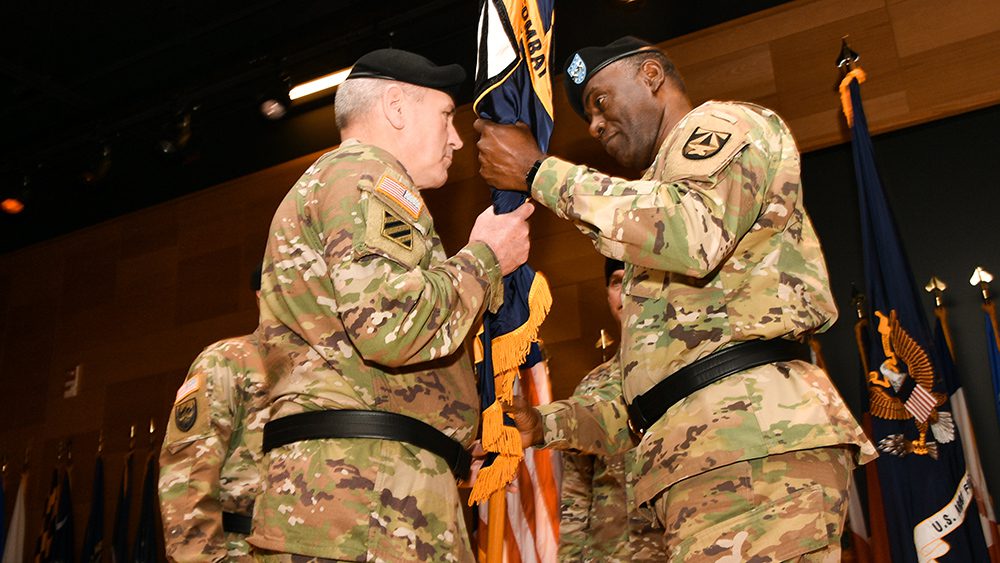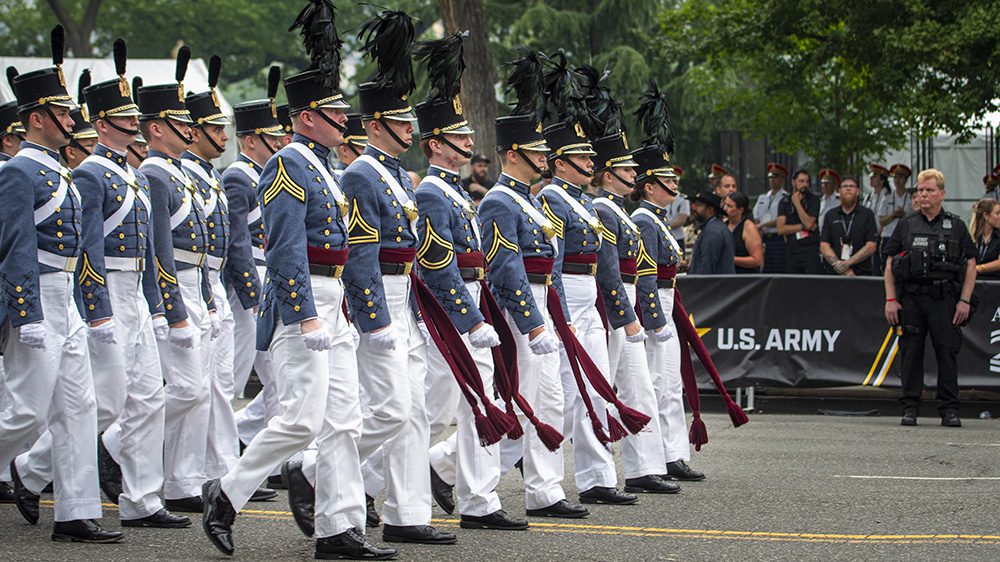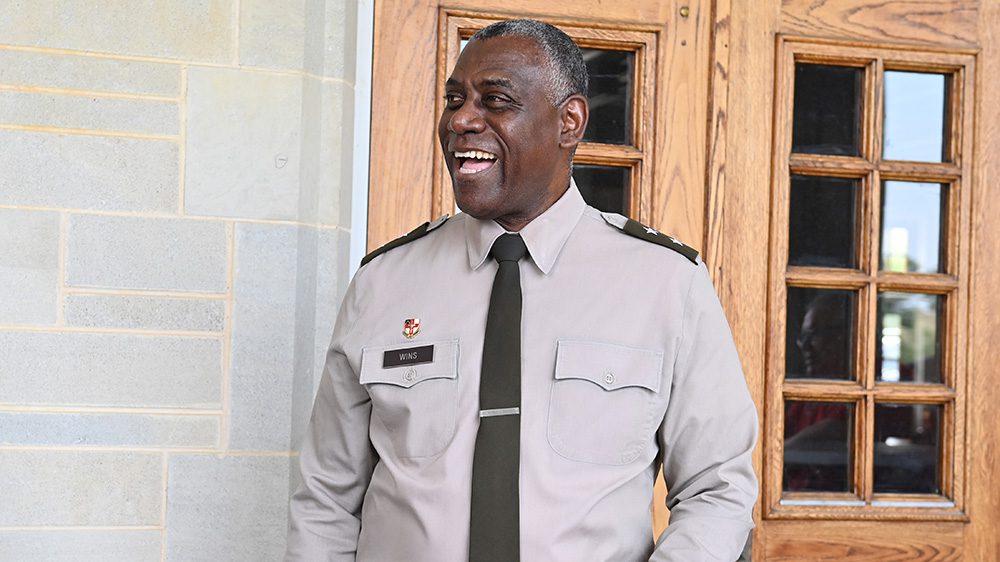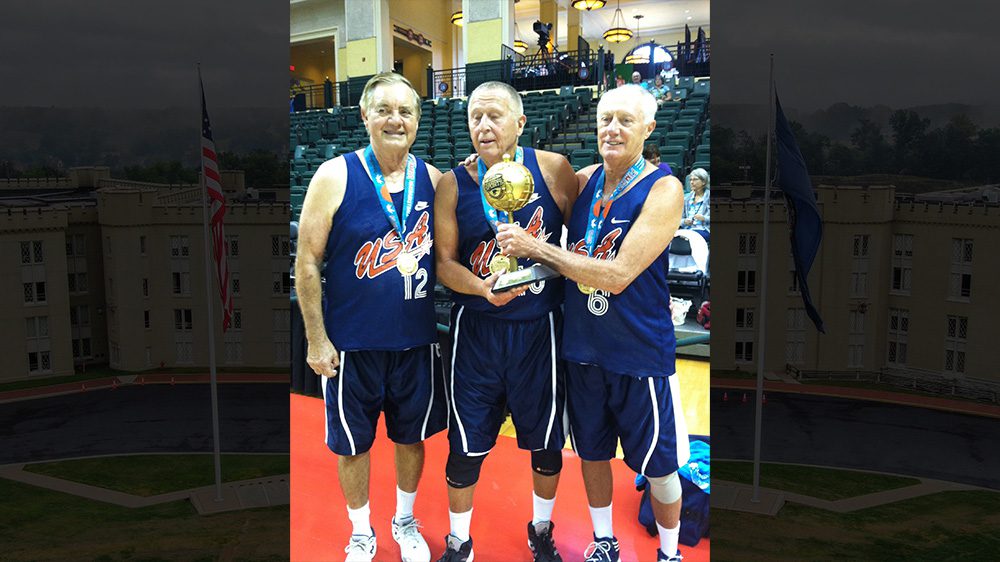After a 34-year military career that began at VMI, Cedric Wins ’85 recently retired from the Army. As a star player on the VMI basketball team, Wins finished his basketball career as one of the five top players in the history of the school. Competing on the basketball team satisfied Wins’ competitive nature, but his ultimate goal was being the first person in his family to get a college degree.
“To see the pride on my mom and dad’s face when I received a college degree was priceless,” Wins said. “My dad didn’t have a college degree, but he was the ultimate role model for me.”
Wins’ other role models while a student at VMI included his dykes and an ecosystem of athletes who shaped his character both on and off the court.
“I watched other athletes to see how they carried themselves and what they did that I admired. Then, I used my observations to see how it fit me as a person, particularly during my teen to young adult years,” Wins said. “I learned to always be humble.”
Among the highlights of Wins’ career at VMI was when he was a 4th Class cadet on the basketball team. The team set a record with the longest losing streak in the team’s history, but they moved on to reach the Southern Conference finals during his 1st Class year.
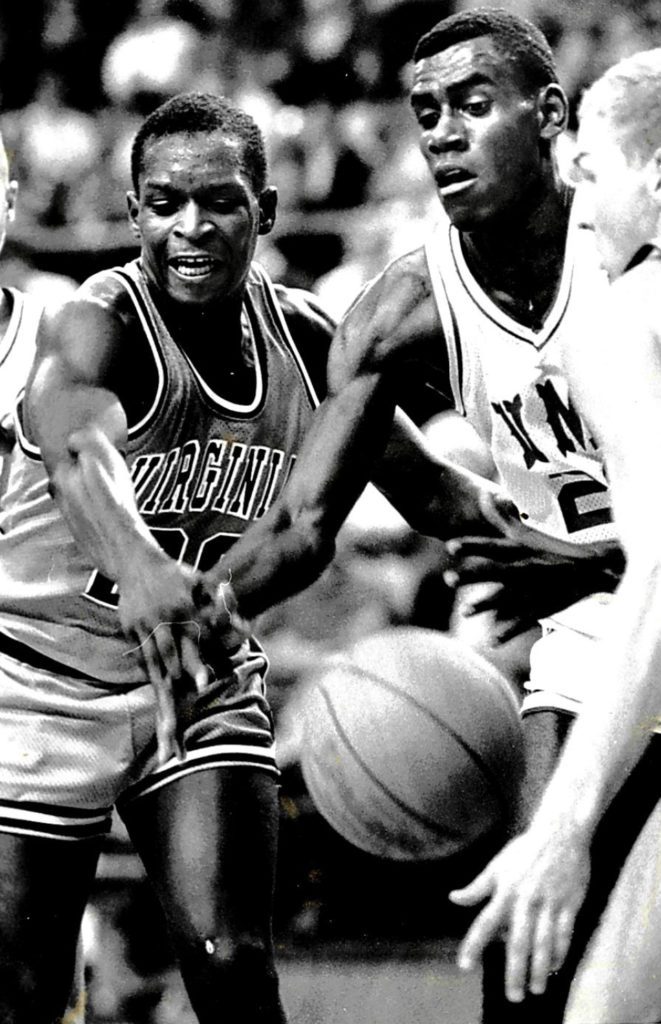
As a star player on the Keydet basketball team, Wins finished his basketball career as one of the five top players in the history of the school. Wins recently retired after a 34-year military career that began at VMI.
“In a period of four years, we went from being the worst team in the conference to being a Southern Conference tournament finalist,” Wins said.
Competition and being part of a team not only drew Wins to play basketball but also to continue his career in the Army.
“Initially, my plan was to serve my commitment to ROTC for three years and leave the Army. But I continued to find things in the Army that challenged me, interested me or allowed me to further my development, so I stayed in,” Wins said.
Wins’ Army career path to becoming a general officer was not the typical path of operations. While his military basic branch was field artillery, he spent about 12 years in assignments in his functional area as an operations research/systems analyst. Soldiers begin in a basic branch, then move to a functional area as their careers progress but typically return to basic branch assignments to continue their career. When the Army decided to invest in young officers from different parts of the Army, Wins was selected for assignment in the Headquarters of the Department of the Army to be an action officer and learn how the Army worked as an enterprise. As a senior captain, he interacted daily with senior officers who were the architects and strategic leaders for the Army.
“Getting that exposure, you learn how strategically the Army runs, you learn things about yourself, you build confidence and you become comfortable briefing senior leaders and giving them your advice,” Wins said.
Once he became a general officer, another diverse assignment involved helping the Afghan Police Force to man, train and equip a security force in Afghanistan. While he had experience in leadership, equipment procurement and resource management, he did not have experience in policing or police development, so he relied on his team for advice. That team consisted of civilian police from various countries, including Australia, United Kingdom, Scotland, Canada and U.S. military forces.
“As a general officer in Afghanistan, police development was not in my wheelhouse. I relied on the talent I was in charge of – the best and brightest – to gather advice for the Afghan police,” Wins said.
When the Sept. 11, 2001, attacks occurred, Wins was on assignment at the Pentagon’s Operations Center. His role – compiling operational activities performed by Army forces around the world into a brief for Army senior leaders – transitioned to round-the-clock.
“In the operations center, we watched replays of the planes hitting the World Trade Center over and over as reports came in. Then, the Pentagon was hit, and I, along with the other members of the team, felt the effect of the attack directly above us in the Army Operations Center,” Wins said. “I related this attack back to my basketball days … this is no longer practice; this is game time.”
He became a crucial part of not only ensuring Army leadership was able to communicate direction to move forces into Afghanistan and Iraq, but also tracking equipment that soldiers would need to operationalize and build combat power in the U.S. Central Command theater.
Wins ended his military career as a major general. Along the way, he was significantly influenced by officers and non-commissioned officers who offered advice and direction.
“They gave you a little whisper in the ear or a kick in the tail every now and then if they saw you had potential,” Wins said.
His advice to young soldiers is to always have a plan – if not a long-term one, a short-term plan with intermediate goals. Wins set milestones every three to five years when he was in the Army, and he accepted opportunities to further his education or gather more leadership experience. He also stresses how important it is to have a supportive family.
While several of Wins’ uncles and his father served in the Army, he doesn’t consider himself a military “brat.” By the time Wins started school, his father had retired from the Army after serving in three wars – World War II, Korea and Vietnam.
“He is the ultimate role model for me. To be raised in the deep south during the time that he grew up and to have three highly successful careers as a military man, U.S. marshal and successful entrepreneur had a huge impact on me,” Wins said.
Wins retired as the commanding general of the U.S. Army Combat Capabilities Development Command. CCDC was stood up in early 2019 when it became part of the newly formed Army Futures Command.
“No matter what the uniform people wear at CCDC, they are smart, they have experience, they work hard, they give you their very best in support of a critical component of Army modernization, they are committed and they understand their mission is to provide technology that produces capability for the warfighter,” Wins said.
For Wins’ next assignment, he won’t need to attend meetings, travel around the country or work 15-hour days where the only daylight he sees is from his office window. Instead, he plans to spend time with his family, build their dream home and unpack a box or two each day. That’s his short-term goal for now, until he decides what he wants to accomplish in his next chapter.
